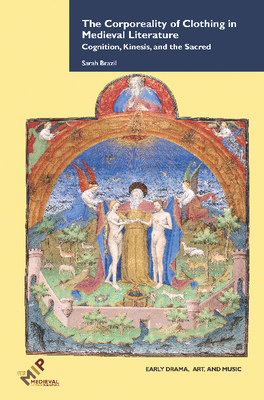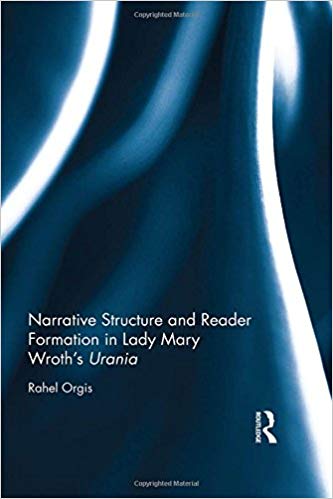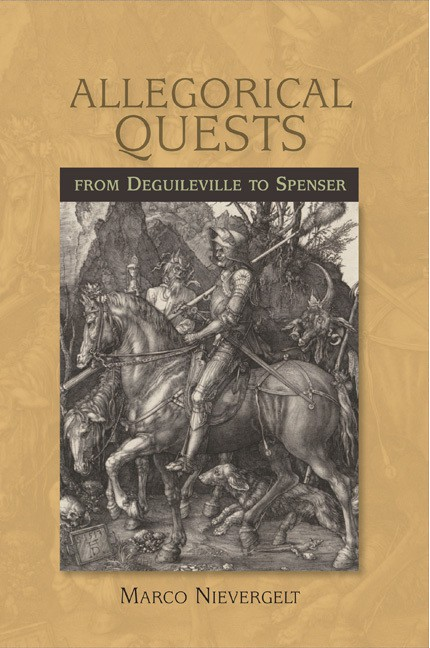The SAMEMES Book Prize was created in 2015 and is awarded every second year, on the occasion of the SAMEMES Conference, to the first published monograph of an early career SAMEMES member.
In order to enter the competition candidates must be paid-up members of SAMEMES by the CFP deadline for the biennial conference and be present at the conference at which the prize is announced.
2020 Recipient
Sarah Brazil, The Corporeality of Clothing in Medieval Literature: Cognition, Kinesis, and the Sacred (Kalamazoo: Medieval Insitute Publications, 2018)
 Extract from the laudatio pronounced at the SAMEMES conference in Neuchâtel, 28 June 2022:
Extract from the laudatio pronounced at the SAMEMES conference in Neuchâtel, 28 June 2022:
Brazil’s elegant, wide-ranging study brings to bear a subtle mediation of a number of key concepts and themes in modern thinking associated with the ‘cognitive turn’ (perceptual simulation, notions of embodiment and affordance) on the analysis of representations of clothing in a broad selection of medieval religious texts from biblical paraphrases and exegesis to hagiography and mystery plays. Combining impressive forensic close reading with sophisticated theoretical nous, it looks, inter alia, at how ontological transformations of the human body from a pre-lapserian to a fallen state and from death to life are symbolised through writers’ discussions of the ‘tunics of skin’ ascribed to Adam and Eve in discussions of the Fall, the soudarion found in Christ’s empty tomb, or the tightly wrapped grave shrouds in which the resurrected Lazarus is nonetheless said to walk. Another powerfully argued chapter discusses how representations of the presence or absence of shoes, their removal or lacing up could perform a variety of figurative functions in discussions of the human and the divine. Impressive in both the rigour of its analysis and its awareness of the wider implications of its local readings, this is a remarkably mature performance from an early career scholar.
2018 Recipient
Rahel Orgis, Narrative Structure and Reader Formation in Lady Mary Wroth’s Urania (London: Routledge, 2017)
Extract from the laudatio pronounced at the SAMEMES conference in Bern, 13 September 2018:
 The recipient of the 2018 SAMEMES Book Prize is Rahel Orgis, for her first published monograph, Narrative Structure and Reader Formation in Lady Mary Wroth’s Urania.
The recipient of the 2018 SAMEMES Book Prize is Rahel Orgis, for her first published monograph, Narrative Structure and Reader Formation in Lady Mary Wroth’s Urania.
At the heart of Dr. Orgis’s project is a simple yet pressing question: how do stories get told in the early modern period and what might this reveal about the culture of reading and writing? To answer this question, Dr. Orgis turns to Lady Mary Wroth’s long and (for modern readers) difficult prose romance, Urania. She focuses on the figure of the narrator, treating it not just as a linguistic device, but also as the source of a wide range of cultural assumptions about speech, authority, and individuality.
The book is very well researched, extremely rigorous in its analysis, and methodologically consistent. The book also opens up genuinely new paths for the study of Lady Mary Wroth’s Urania, as well as other prose texts of the early modern period. Rahel Orgis’s work will be particularly useful for developing new critical narratives around women writers of the early modern period. Indeed, Orgis’s appendices alone – a series of detailed charts which lay out the narrative structure of Urania from different perspectives – will be of great value to early modernists specializing in Wroth or early modern romance.
The members of the 2018 SAMEMES Book Prize committee are unanimous in offering this year’s prize to Rahel Orgis for her monograph, Narrative Structure and Reader Formation in Lady Mary Wroth’s Urania for the 2018 SAMEMES Book Prize. Many congratulations!
The SAMEMES Book Prize committee consisted of the following SAMEMES members: Indira Ghose (UNIFR), Kevin Curran (UNIL), and Denis Renevey (UNIL).
2016 Recipient
Marco Nievergelt, Allegorical Quests: From Deguileville to Spenser (Cambridge: D.S. Brewer, 2012)
 Extract from the laudatio pronounced at the SAMEMES conference in Zurich, 9 September 2016:
Extract from the laudatio pronounced at the SAMEMES conference in Zurich, 9 September 2016:
The SAMEMES Book Prize Committee is unanimous in offering the Prize to Marco Nievergelt. His scholarly contribution to the allegorical quest tradition and the creation of the modern self is superbly and very convincingly discussed. The monograph is original in its conception, thorough in its scholarship, lucid in its argumentation, and – as an added bonus – a pleasure to read. Bringing together an illuminating succession of texts, from Guillaume de Deguileville’s Pèlerinage de la vie humaine to Edmund Spenser’s Faerie Queene via lesser known authors such as Stephen Hawes, Stephen Bateman, William Goodyear, and Lewes Lewkenor, it offers a clear discussion on identity and self-representation as represented in quest narratives. It opens a new window into this overlooked genre and addresses most pertinently the question of the emergence of the self in several of its configurations in a way that invites crossing periods and genre. In the process, the study thus makes a useful contribution to growing awareness of the problems of academic tendencies to create artificial divisions in literature; particularly divisions across the medieval and early modern divide.
So, an additional reason that it is a pleasure to recommend this book for the SAMEMES prize is that it is genuinely medieval and early modern. By proceeding in roughly chronological order through a range of texts from ca. 1350 to ca. 1600, it bridges the two periods as they are traditionally defined and, in the process, revisits and dismantles received ideas about the relationship between the two.
[2016 SAMEMES Book Prize committee: Elisabeth Dutton, Lukas Erne, and Denis Renevey]

 Extract from the laudatio pronounced at the SAMEMES conference in Neuchâtel, 28 June 2022:
Extract from the laudatio pronounced at the SAMEMES conference in Neuchâtel, 28 June 2022: The recipient of the 2018 SAMEMES Book Prize is Rahel Orgis, for her first published monograph,
The recipient of the 2018 SAMEMES Book Prize is Rahel Orgis, for her first published monograph,  Extract from the laudatio pronounced at the SAMEMES conference in Zurich, 9 September 2016:
Extract from the laudatio pronounced at the SAMEMES conference in Zurich, 9 September 2016:






